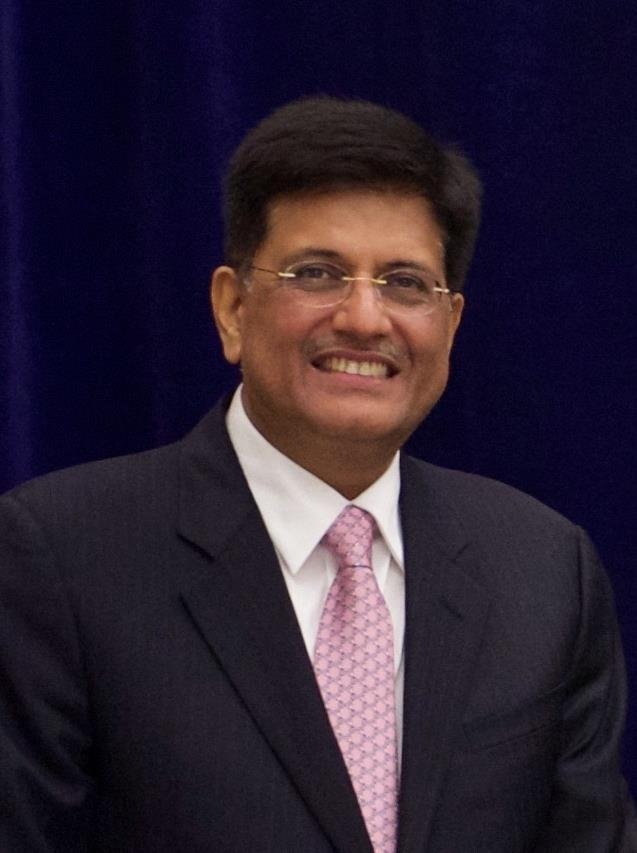

Shri Piyush Goyal, Union Minister of Commerce and Industry, Consumer Affairs, Food and Public Distribution, and Textiles, was interacting with the heads and senior faculty members of Indian Institute of Foreign Trade (IIFT), Indian Institute of Packaging (IIP), National Institute of Design (NID), National Institute of Fashion Technology (NIFT) and Footwear Design and Development Institute (FDDI) in New Delhi.
The minister emphasized that this was the first time the five illustrious organizations that fall under the purview of the Ministries of Commerce and Industry and Textiles had interacted in this manner.
Anurag Jain, Secretary of Commerce, Secretary of the Department for Promotion of Industry and Internal Trade, senior officials from various departments, including Shri Shahank Priya, Secretary, Textiles, Ms. Rachna Shah, Special Secretary, DPIIT, Ms. Sumita Dawra, Special Secretary and Financial Advisor, DPIIT, and Shri Sunil Barthwal, were also present at the discussion.
He urged close coordination among the five institutions so they could cooperate and create synergies for growth and improvement. He urged the institutions to consider sharing campuses and joining forces with other organizations to use their resources more efficiently.
Shri Goyal asked the institutes to concentrate on developing a strong alumni program and an extensive alumni network. He believed that alumni networks have a great potential to help the alma mater grow. He also urged businesses to generously support prestigious educational institutions.
The minister referred to the Paanch Pran announced by Prime Minister Shri Narendra Modi and asked the institutes to align themselves with these five visionary vows. The Minister stated that educational and vocational institutions must prioritize the development of human resources not just in cities but also across the entire country. He emphasized that no child should be left behind and encouraged organizations to launch scholarship initiatives.
On August 15, 2022, Prime Minister Narendra Modi addressed the nation, during which the PM set "Panch Pran Targets" (Five Resolves) to transform India into a developed nation within the next 25 years, when India celebrates its 100th Independence Day.
Moving forward with bigger resolutions and the resolve of a developed India, erasing all traces of servitude, being proud of India's legacy, unity, and the duties of citizens, including the PM and CMs, are among the Five Resolves that the PM asked people to take.
The minister recommended that the institutions work to forge enduring ties with the eastern and north-eastern regions of the country and to broaden diversity among faculty and students.
The Minister strongly encouraged the institutions to make every effort to eliminate any traces of a colonial mindset in processes, practices, and working styles. His opinion was that colonial practices frequently led to exclusionary tendencies that intimidated and alienated the common man. Shri Goyal emphasized the importance of returning to our roots and noted that there is a great deal we can learn from tradition and heritage and impart to the rest of the world.
In order to increase campus placements, the minister advised the institutions to market their services to the public. Shri Goyal believes that every campus should become a startup incubator and strive to foster and develop innovation and entrepreneurship. He urged academic establishments to consider whether their curriculum is designed to meet future demands. “We must aim to introduce Indian fashion technology to the industrialized markets around the globe,” he said. He also highlighted the necessity of increasing the faculty base and making significant investments in faculty development.
He requested that institutions conduct more case studies and publish case study-based papers. They were also instructed by the minister to publish more research papers and to conduct ground-breaking research. He called for the updating of campuses, furnishings, testing facilities, and technologies to a world-class standard. Whenever possible, the minister urged campuses to identify potential GI products and nurture and develop them. He pointed out that India has the capacity to produce up to 2000 GI products.
During the interactions, the five educational institutes presented the key aspects of their structure and operation, as well as suggestions and requirements for future growth and expansion.
To enable them to support center initiatives like “One District One Product” and “Districts as Export Hubs”, Secretary of Commerce Shri Sunil Barthwal asked the institutions to establish a connection with District Industrial Centres (DIC).
The secretary of the department of textiles, Ms. Rachna Shah, proposed the formation of a core group composed of the institution's leaders and senior ministry officials for a more intensive and ongoing exchange of ideas. She also advocated for our students and faculty to gain more international experience.
Anurag Jain, secretary of the DPIIT, called for institutions to conduct more targeted, industry-relevant research and suggested that such efforts be encouraged.
The goal of the meeting was to promote institute convergence in order to foster synergies, the sharing of resources, and best practice experiences that would result in open innovations. Deliberations were held on fostering industry-academia collaboration and the interface of institutes with industry by presenting the latest technology, engaging in R&D, and meeting the industry's market-specific innovation needs. To maintain a symbiotic relationship with the institutes' alumni and increase their contribution to their alma mater, discussions on how to build a global professional network by interacting and engaging with them were held.
Suggestions were made for working with foreign institutes through student and faculty exchange programs, as well as for community or sector development, such as handloom and handicraft cluster development, through design interventions or adoption.
*Image Source: Wikipedia